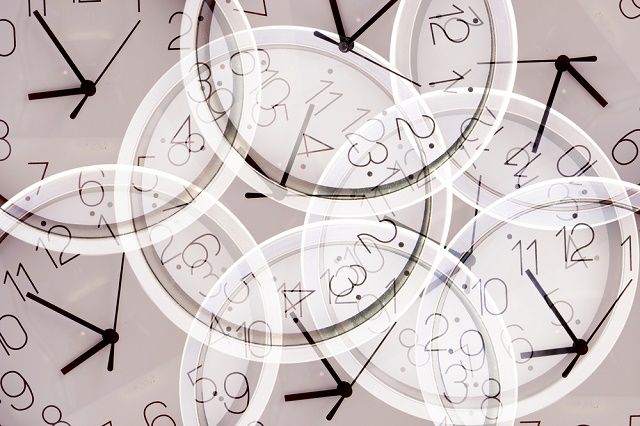Nobody really likes call centers.
Most companies that have them only have them reluctantly. The people who work in them would often rather be anywhere else. And the people who have to call them -- which includes just about everybody -- find them frustrating.
But they're a fact of modern life and won't be going away any time soon. So why do they annoy us so much and what can we do about it?
The Workings of a Call Center
When you dial into a call center, you may think you're calling a branch of your bank, or your internet provider, or the manufacturer of your computer, but you're probably not.
More likely, you'll end up talking to someone who works for a Business Process Outsourcer (BPO) -- a company that specializes in the unpleasant business of dealing with unhappy customers.
For economic reasons, many companies use offshore call centers, and while they may answer your call more quickly than a local one, that doesn't mean your call will be shorter or less frustrating. Quite the opposite, in fact.
If you aren't used to accents, or if you have a strong accent of your own, you may find talking to someone in India or the Philippines an extremely trying experience, and you won't have much choice in the matter beyond switching service providers.
Offshoring has become less popular as companies realized the frustrations of navigating Interactive Voice Response (IVR) and getting complex instructions over the phone from agents who can't speak well or understand you. Some companies even use their local call centers as a selling point.
But the thing about call centers is that they're highly goal-oriented with an emphasis on throughput. This means X% of calls must be answered within Y seconds. (It's more complicated than that, obviously, but that's the basic idea.)
So if they're so focused on answering as many calls as possible as quickly as possible, why are you sitting there listening to Opus Number One for 20 minutes every time you need an issue addressed or a question answered?
The Reason Why We Have to Wait
Call centers, especially those providing technical support, drain company resources. There's a delicate balance between how annoyed a company can allow its customers to be and how much the company is willing to pay to mollify those customers.
So call centers use historical data and fancy algorithms to forecast the number of calls they expect, and then try to staff as closely to that as possible. This means that staffing is always tight. Too many staffers? They're throwing money away. Too few? Calls start to back up.
Call center forecasts usually work in fifteen minute intervals and can be amazingly accurate, but that doesn't always mean staffing will be what it should.
Firstly, it's not always possible to staff to the forecast accurately, and as long as service level can be met for the day, some intervals will simply be sacrificed for the greater good.
And then there are the actual staffers, who tend to be young and, depending on the economic climate, can be horrendously unreliable. A certain amount of absence is built into the forecasts, but sometimes this is exceeded.
And sometimes the forecast is just way off. A long weekend, a new product launch, a service outage, or just unexplained statistical clustering can mean that expected call volumes are exceeded -- which means you'll be waiting longer than expected.
When Is the Best Time to Call?
There's no single best time to call a call center. Generally, you call when you need to. There are too many factors at play to give a definitive answer, but the following guidelines can prove useful if your call isn't urgent.
Avoid Mondays. Mondays in a call center are almost always busier, especially if the call center is closed on weekends. Staff absence can be higher on Mondays too, due to the propensity of young people to develop "food poisoning" or other ailments over the weekend. And staff can be less friendly. Nobody likes Mondays, right?
Conversely, Sundays can be a good time to call, but only if the center you need to call is open on a Sunday. It's worth checking as people often assume they will be closed. It's also a day when people tend to kick back and relax, and not make stress-inducing phone calls (except to their parents).
A call center that opens at 8 AM probably doesn't get busy until after 9 AM, but may also be understaffed during that first hour. Calling as soon as the lines open is worth a shot, but if you leave it too long, you'll probably end up waiting until the reinforcements arrive.
The period between 10 AM to 12 PM always tends to be busy on weekdays. People at work are calling during their breaks, parents are calling after dropping their children off at school, and people who are unemployed are just waking up. It's also before the "overlap time" for most call centers.
Many call centers have an overlap during which they are overstaffed to an extent. Full time staffers normally work eight hours, and call centers are usually open for longer than eight hours but shorter than sixteen, meaning that at some point most full-time staffers are present.
That overlap is probably the best time to call. It's the period when they will be trying to recover service level from a busy morning and to protect it against a possibly busy evening, and therefore when your call is most likely to be answered quickly. A call center that's open from 8 AM to 8 PM likely has an overlap between 12 PM to 4 PM, but avoid the lunch rush if you can.
So, with the caveat that this is a very general rule with too many exceptions to make it reliable, the best time to call most call centers is probably between 2 PM and 4 PM on a Wednesday (nobody takes Wednesday off).
The Best Way to Hasten Your Call
As tempting as it may be, don't ignore the IVR -- that delightful recorded voice that guides you through a maze of options. You may be able to press * or 0 to talk directly to an agent, but that doesn't mean you should.
You'll still have to hold until someone's available. Then you'll have to explain your issue to whoever answers and most likely have to hold again as they transfer you to the right department -- or quite possibly the wrong department.
Pay attention to the IVR. It may give you information about service outages or other known issues that can save you from continuing the call. Write down the options you select so that if you have to call back, you can just punch them in right away. (The system is usually responsive as soon as the voice starts speaking.)
You may also be able to use an app like FastCustomer or LucyPhone that will do the waiting for you. They won't work for every company, and the time it takes to download the app and figure out how it works may be longer than the time it saves you, but if you find yourself on hold a lot, an app like that may be worth the effort.
Make sure to have as much information on hand as you can for when you do get through: your account number, phone number, PIN, the model of your product, the exact text of any error message, or anything else that's relevant to your query. Have a pen and paper handy in case you need to take down instructions, a reference number, or another number to call.
Be polite to the person you're talking to. The issue you're having is not their fault and they are mostly trying to help you. The more likable you are, the more they'll go out of their way to assist you. Being nasty or self-important will only encourage the agent to do the absolute minimum for you. And if you swear, the agent is often permitted to end the call.
Calling Should Be a Last Resort
The best way to avoid long calls is to avoid calling at all. If you're having a technical problem, check all the connections and power-cycle everything. If you get an error message, search the web for a solution. It may be something simple that you can handle yourself.
Even if you can't find a solution, you'll probably learn more about the problem itself, allowing you to speed up the call by skipping over unnecessary steps.
Where appropriate, check the company's website or Twitter feed for information about service outages, upgrades or other issues. There may be alternatives to calling, such as web chat or email support.
Response times tend to be faster on web chat than on the phone and, particularly if it's a simple query, may be just as good. Email is obviously slower but you don't have to actively wait for a response. Contacting the company via social media may be an option. Amazon is a great example of a company with multiple ways to contact customer service.
When All Else Fails
Sometimes you just have to call. You can't avoid it, you can't delay it and you can't shorten it. All you can do is prepare and hope that the call goes well enough to solve your issue and leave you satisfied.
So, relax. Make sure to have all the relevant information to hand, and a pen and paper. Keep a book handy so you have something to do -- nothing too taxing or engrossing. Put your phone on speaker or use a Bluetooth headset so you can walk around, do chores, or whatever else.
And remember, your call is important to us!
What's the longest you've ever been waiting on hold? Do you have any other tips for shortening your wait time? Let us know in the comments section below.
Image Credit: call center by 3D_creation via Shutterstock, Call center chainarong06 via Shutterstock, Man waiting on phone A and N photography via Shutterstock, Overlapping clocks janonkas via Shutterstock, Prepared caller TrotzOlga via Shutterstock





